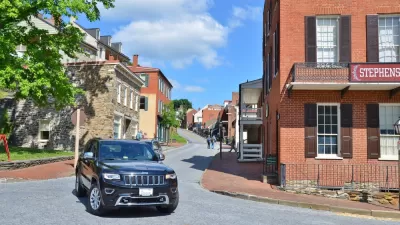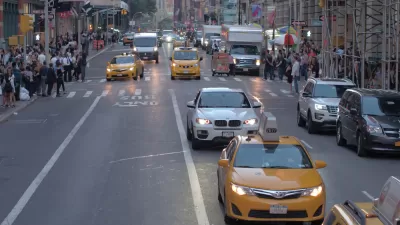Looking at the history of car recalls, Gladwell recognizes a tension between the way engineers see malfunctions and how the public sees them. It's easy to blame the machine, but that doesn't always solve the problem.

With news of this week's fatal Amtrak crash still fresh, perhaps it would be wise to keep this in mind: "To the engineer, a car sits somewhere on the gradient of acceptability. To the public, a car's status is binary: it is either broken or working, flawed or functional."
Gladwell's statement could apply equally to trains, planes, and automobiles. His piece in the New Yorker explores the roots of this engineer-public tension through the career of Denny Gioia, who worked in the recall department at Ford Motor Company.
As point man during the 1970s Ford Pinto recall crisis, Gioia walked a tightrope between the sociological imperative to reduce deaths, and the engineer's knowledge that out of millions of cars, some will malfunction.
Gladwell points out that driver error dwarfs mechanical failure as a cause of car accidents: "the variables that really matter have to do with the driver, not the car. The public approach to auto safety is preoccupied with what might go wrong mechanically with the vehicles we drive. But the chief factor is not what we drive; it is how we drive."
FULL STORY: The Engineer’s Lament

Alabama: Trump Terminates Settlements for Black Communities Harmed By Raw Sewage
Trump deemed the landmark civil rights agreement “illegal DEI and environmental justice policy.”

Study: Maui’s Plan to Convert Vacation Rentals to Long-Term Housing Could Cause Nearly $1 Billion Economic Loss
The plan would reduce visitor accommodation by 25% resulting in 1,900 jobs lost.

Planetizen Federal Action Tracker
A weekly monitor of how Trump’s orders and actions are impacting planners and planning in America.

Wind Energy on the Rise Despite Federal Policy Reversal
The Trump administration is revoking federal support for renewable energy, but demand for new projects continues unabated.

Passengers Flock to Caltrain After Electrification
The new electric trains are running faster and more reliably, leading to strong ridership growth on the Bay Area rail system.

Texas Churches Rally Behind ‘Yes in God’s Back Yard’ Legislation
Religious leaders want the state to reduce zoning regulations to streamline leasing church-owned land to housing developers.
Urban Design for Planners 1: Software Tools
This six-course series explores essential urban design concepts using open source software and equips planners with the tools they need to participate fully in the urban design process.
Planning for Universal Design
Learn the tools for implementing Universal Design in planning regulations.
Caltrans
Smith Gee Studio
Institute for Housing and Urban Development Studies (IHS)
City of Grandview
Harvard GSD Executive Education
Toledo-Lucas County Plan Commissions
Salt Lake City
NYU Wagner Graduate School of Public Service





























